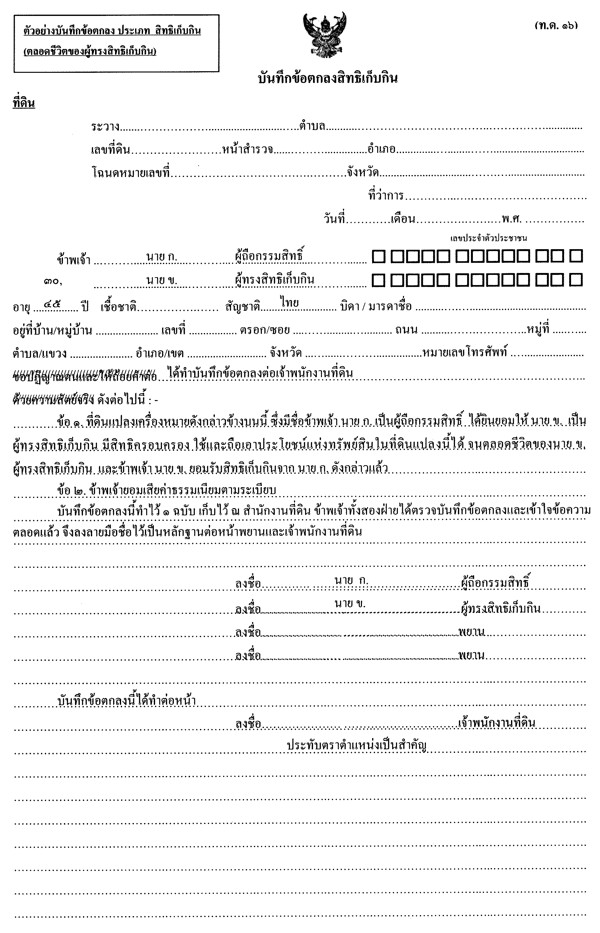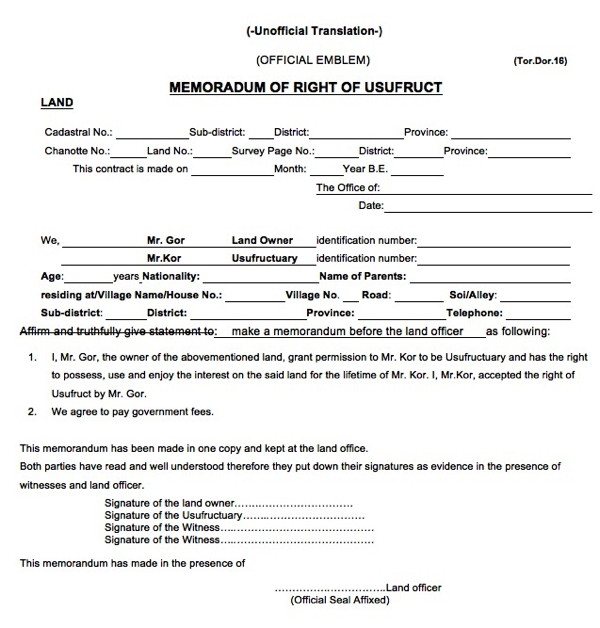Many people have questions about the different sorts of property rights according to the Thai Civil Code. These articles will tell you about property real rights and personal rights.
“Real Rights” are a right that a person has over immovable property. Rights attach to a thing rather than a person. Real property rights must be registered against the title deed of the property. Some common real rights are:
Right of Usufruct
Section 1417 of Civil Code states: “An immovable property may be subjected to a usufruct by virture of which the usufructuary is entitled to the possession, use and enjoyment of the property”.
Right of Usufruct is a real right of enjoyment, enabling a holder to derive profit or benefit from property that either is titled to another person or which is held in common ownership, as long as the property is not damaged or destroyed. This right is transferable.
Period: Maximum 30 years or lifetime of an owner or a usufructuary.
How to Register
The owner and the usufructuary make a contract and register their rights at the land office where the land located. Both parties agree on how much the compensation is.
If there is no compensation, the fee would be 50 baht per plot of land plus some miscellaneous fees charged by the Land Deparment.
If compensation is being paid on the land, the government fee is 1% of total compensation plus some miscellaneous fees imposed by the Land Department.
Documents Needed:
- Original Title Deed of the land;
- ID.Card and House Registration of both parties;
- Any Name Change, Surname Change or Marriage Certificate (if any)
Sample of Memorandum by Land Office

